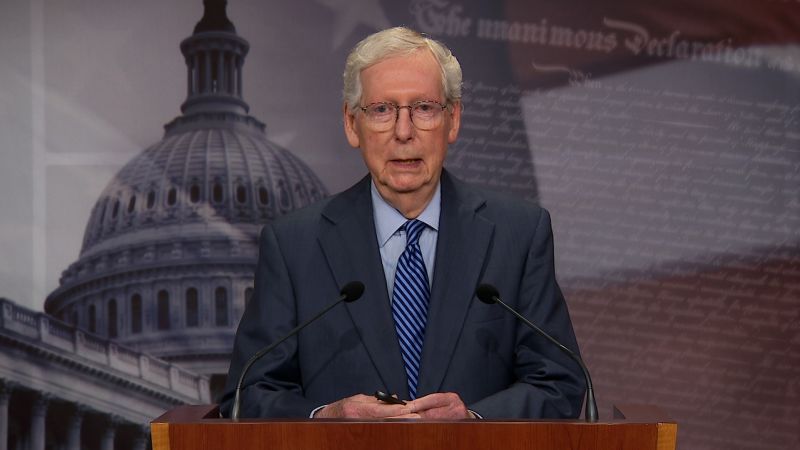In a recent interview, McConnell criticized Carlson for spreading misinformation and fear-mongering about the aid to Ukraine. He accused the Fox News host of having a “shocking lack of knowledge” about the issue and undermining efforts to support Ukraine in its conflict with Russia. McConnell’s comments come as the Senate prepares to vote on a foreign aid package that includes $13.6 billion in military and humanitarian assistance for Ukraine.
McConnell’s remarks reflect a growing divide within the Republican Party over how to approach foreign policy issues, particularly when it comes to supporting Ukraine. While some Republicans, like McConnell, have advocated for providing aid to Ukraine to counter Russian aggression, others, including Carlson, have voiced opposition to the funding, citing concerns about corruption and American involvement in foreign conflicts. McConnell’s criticism of Carlson highlights the ongoing debate within the party over the U.S.’s role in international affairs.
The aid package for Ukraine has bipartisan support in Congress, with lawmakers from both parties recognizing the country’s strategic importance in countering Russian influence in the region. McConnell’s rebuke of Carlson underscores the challenges facing Republican leaders as they navigate competing interests within their own party while also trying to maintain a united front on key foreign policy issues. The controversy surrounding the aid to Ukraine reflects broader divisions within the GOP over how to approach international affairs and the U.S.’s role in the world.
McConnell’s decision to publicly criticize Carlson is significant because it signals the rift within the Republican Party over foreign policy matters. By calling out Carlson for spreading misinformation and sowing discord amongst Republicans, McConnell is attempting to assert his leadership and influence in shaping the party’s stance on international affairs. The conflict between McConnell and Carlson is emblematic of the larger struggle within the GOP to define its foreign policy agenda and approach to global challenges.
As Congress moves closer to passing the foreign aid package for Ukraine, McConnell’s comments serve as a warning to fellow Republicans about the dangers of divisive rhetoric and misinformation in shaping public opinion and policy decisions. By taking a stand against Carlson’s anti-Ukraine sentiment, McConnell is positioning himself as a voice of reason and moderation within the party, advocating for a more measured and informed approach to foreign policy issues. Ultimately, McConnell’s rebuke of Carlson underscores the need for unity within the Republican Party on key national security and foreign policy matters, particularly as the U.S. navigates complex geopolitics in Eastern Europe and beyond.


